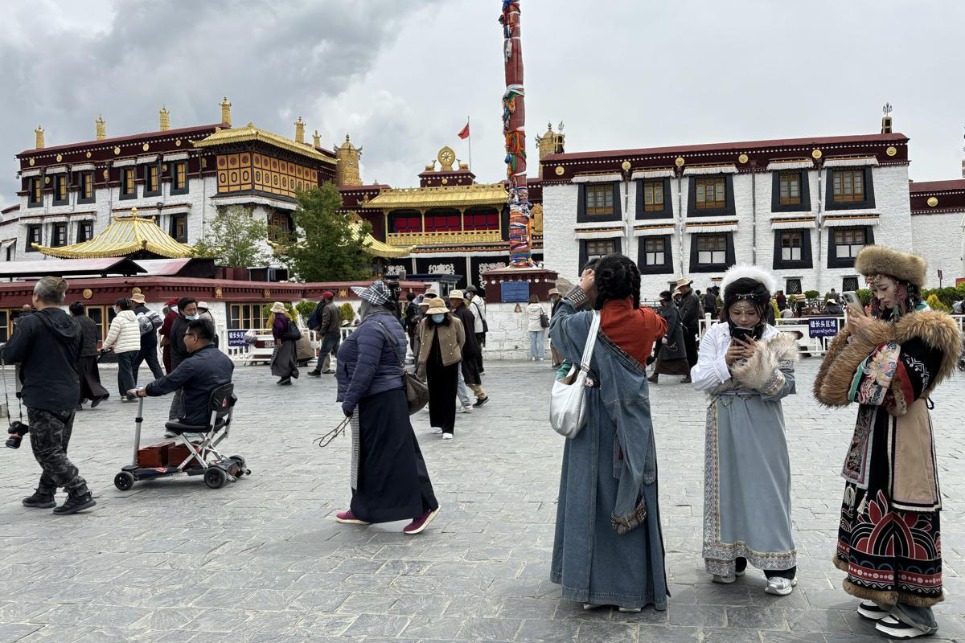Jiangxi's free lung screening saves lives

An ordinary checkup turned into a lifesaving experience for 68-year-old Wen Jianping in Nanchang, Jiangxi province.
During a routine physical examination arranged by his workplace in May, doctors spotted a small shadow on his lung — a finding that would soon redefine his understanding of health, and of luck.
"I had no symptoms at all," said Wen, who works night shifts at a local hospital. "But the CT results showed a 22-millimeter nodule in my lung."
Within weeks, he was admitted for surgery. On June 30, thoracic surgeons at the First Hospital of Nanchang performed a 14-hour operation to remove the growth, later confirmed as early-stage lung cancer.
Three months later, Wen is fully recovered and back at work. "I lost 10 kilograms after surgery, but I soon regained my strength," he said.
Wang Hui, chief thoracic surgeon at the hospital, said Wen's case demonstrates the lifesaving value of Jiangxi's province-wide organized lung cancer screening program.
"Most early-stage lung cancers cause no symptoms," he said. "Only through low-dose CT (scans) can they be detected early. Early diagnosis and treatment greatly improve survival rates and quality of life."
People's livelihood issues have been among the key priorities for Jiangxi province during the 14th Five-Year Plan period (2021-25).Since this year, Jiangxi has launched an organized lung cancer screening and early intervention program at the provincial level.
The project offers free low-dose CT scans to residents aged 50 to 74 who are natives or have lived in the province for at least six months.
For another resident, surnamed Tan from Duchang county, Jiujiang city, the screening program became an unexpected lifeline.
Earlier this year, Tan accompanied his elderly father to a designated hospital for a free CT scan under the same project.
His father's results showed a high-risk pulmonary nodule requiring follow-up. "When I heard that," Tan recalled, "I suddenly thought that maybe I should get checked, too."
That casual decision saved his life. Tan's own scan revealed a 9-mm nodule with blurred edges — a high-risk sign.
"I couldn't believe it," he said. "I don't even smoke — how could I have this?"
He soon sought treatment at Jiangxi Cancer Hospital, where doctors advised immediate surgery. With robotic-assisted minimally invasive techniques, surgeons removed the lesion. The postoperative pathology confirmed minimally invasive adenocarcinoma — an extremely early stage of lung cancer.
"The operation was timely — without early screening, it might have gone unnoticed for years," said the attending specialist.
Deeply moved by his experience, Tan has since become an advocate for proactive screening. Encouraged by him, five of his relatives and friends underwent chest CT scans.
Shockingly, three were found to have nodules — and one was diagnosed with early-stage lung cancer. "I never imagined one test could influence so many people," Tan said. "It didn't just save me — it might have saved them, too."
By October, the program had completed health questionnaires for 3.3 million people and low-dose CT scans for 506,600 residents.
More than 60,000 positive nodules and over 8,000 suspected lung cancer cases were detected. Among 900 confirmed cases, more than 75 percent were early-stage, with most patients diagnosed and treated.
"Community health service centers across Nanchang are all participating," said Wang. "High-risk groups, such as smokers or people with a family history of lung cancer, are identified through questionnaires and invited for screening. The project is fully funded by the government, ensuring that people receive scans free of charge."
zhaoruinan@chinadaily.com.cn





































